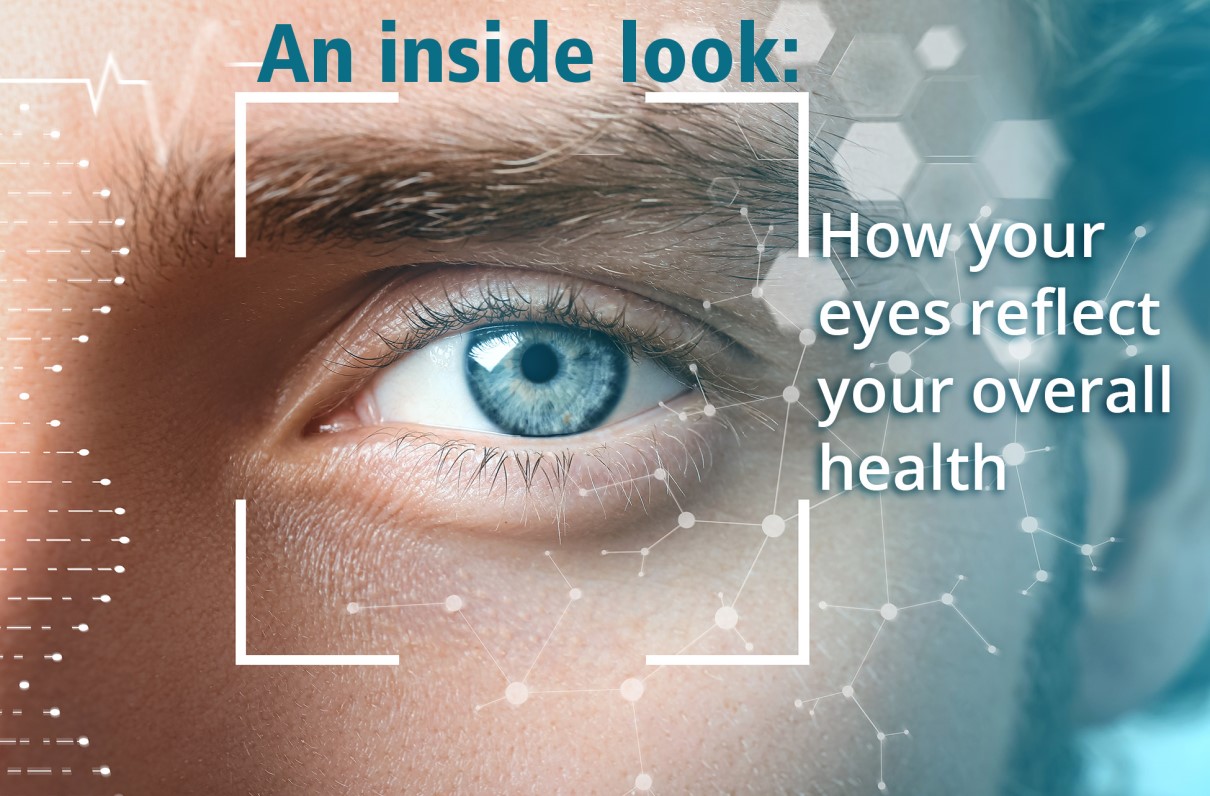This content is sponsored by MOAA Insurance Plans, administered by AMBA Administrators, Inc.
Did you know that, on average, your eyes blink over 4 million times a year? Now that’s a fun fact to share at a party!
Seriously, though, blinking serves a vital purpose: it helps to protect one of the most important parts of your body. Blinking lubricates and cleans your eyes by spreading tears over the outer surface. Also, the frequent opening and closing of your eyelids helps to keep out dust, foreign objects, and other irritants.
As the second-most complicated organ (after the brain), the eyes are truly fascinating. Not only do they enable us to view the world, they also offer a view into ourselves. Eyes can express emotion, often communicating how we think and feel.
Even more intriguing, your eyes can actually reveal a lot about your overall physical well-being. That’s why a yearly eye exam should be part of your ongoing medical maintenance.
Bring Your Health Into Focus
The main purpose of an eye exam, of course, is to test your vision and other aspects of your eye fitness. A thorough assessment of the eyes can determine if you are at risk for:
- Cataracts. This condition causes clouding of the lens behind the pupil, leading to blurriness and poor night vision.
- Glaucoma. Increasing damage to the optic nerve at the back of the eye can result in permanent vision loss.
- Macular degeneration. Your central, detail-oriented vision is affected, causing sensitivity to light and blurred vision.
When caught early, these conditions can usually be treated successfully. The sooner a problem is detected, the easier it is to prevent vision loss.
There’s More Than Meets the Eye
In addition to diagnosing vision problems, an eye exam can also bring other health conditions to light. In the back of your eyes are blood vessels and nerves that connect the brain and the heart. Some conditions, including diabetes and high-blood pressure, can damage these vessels. To a physician monitoring a patient’s cardiovascular health, the results of an eye exam can provide meaningful data.
For all of these reasons, it’s important to get regular eye exams — even if you don’t currently have any problems with your sight. MOAA can help make it easier to pay for regular vision care. As a member, you can take advantage of affordable MOAA-endorsed Vision Insurance. It covers comprehensive eye care and provides vision discounts through a leading network of providers.
To learn more about this member benefit, visit www.moaainsurance.com/vision.
